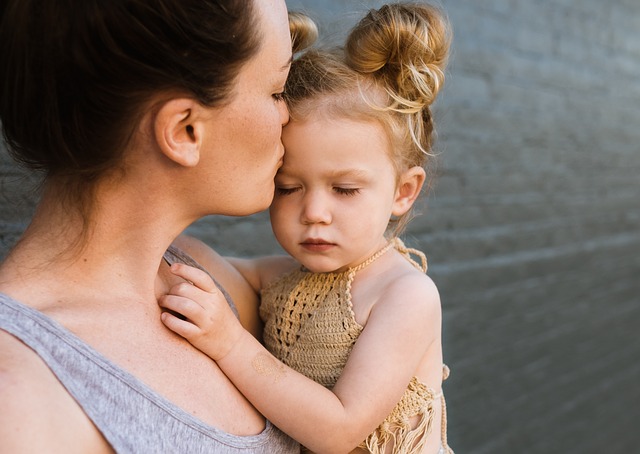
Lessons in Nurturing Empathy and Caring in Toddlers
Lessons in Nurturing Empathy and Caring in Toddlers
In this article, you will learn about lessons in nurturing empathy and caring in toddlers. Empathy is the ability to imagine how someone else is feeling in a particular situation and respond with care. This is a very complex skill to develop. Studies show that around 2 years of age, children start to show genuine empathy, understanding how other people feel even when they don’t feel the same way themselves. And not only do they feel another person’s pain, but they actually try to soothe it. A sudden burst of sweetness out of a child whose mantra has been “mine, mine, mine” for most of her life may make it seem like your child’s empathy switch just clicks on one day. But acquiring this rather sophisticated social skill doesn’t really happen overnight. It’s important to remember that while your child is learning to be empathetic, he’s also learning to assert his independence and communicate what he wants. This developmental combination can result in empathetic behavior one moment and aggressive behavior the next. So, while your 18-month-old may offer you a hug when he thinks you’re sad, he may also smack his playmate to communicate that he wants her toy.
How Can You Help Your Child Develop Empathy?
Here’s How you can do it :
Teach Empathy with Games –
When your child is down on the ground playing with dolls or trains, follow the child’s lead with the make-believe, and take the opportunity to teach empathy during the game. If one doll hits the other doll, or a train collides with another, you can say, “Ow! My train is hurt, can you fix it?” Or, “My dolly has an owie on her knee, could you put a band-aid on it?”
Listening –
A big part of empathy is being able to talk about how you feel and listen to how others feel. So, parents would do well to listen to their children, repeat back what they are saying to show they are listening, and empathize with their children when they express their feelings.
Be an Empathetic Parent –
Raising an empathetic child requires an empathetic parent. An empathetic parent is one who is well attuned to the emotional workings of their child’s mind. When you are easily able to imagine their point of view, it prevents you from snapping at them in times of instant rage. Instead of baring your emotions by meanly displaying them, speak to your child about them. Tell them “You have made me extremely frustrated”, “You have disappointed me”, etc. in a calm tone. This sets their empathetic thought process in motion. Note that a child who is sharply scolded may feel resentment more than understanding.
Temper Your Expectations –
Empathy is very much a work in progress for toddlers. Some children understand it without much effort; other kids need more practice. Don’t forget that egocentrism is normal for a toddler. They can’t be empathetic and unselfish all the time.
Role Play –
Creative role-playing with puppets or dolls is a wonderful way for children to investigate others’ feelings. If you want to explore envy, for example, have one puppet receive a gift while another gets nothing. Then ask your child how the puppet without a present feels. Role-playing is also a good way to teach kids how to offer comfort to others.
Write Genuine Thank-You Notes –
Eden also helps her kids move beyond the standard “Thank you for the Polly Pocket” boilerplate by asking questions such as, “What would it be like if you spent a lot of time choosing a great gift for a friend and she didn’t thank you?” and “How do you think Timmy will feel when he gets his very own letter in the mail?” Don’t insist that your child pen the note herself—if she’s young enough that merely thinking about what to say is a huge task, write it for her and let her sign it.
Positive Reinforcement –
If you observe your child perform a genuine act of kindness, praise them for it. You shouldn’t go overboard with lavish praise, but only enough to let them know that you observed it and that you appreciated it. You can also discuss the feelings of the person who your child showed kindness to. Do not reward them with something tangible like a toy or a treat for this though – you don’t want them to associate kindness to rewards! Positive Reinforcement is much more effective than the other side of the coin – punitive action – in how to develop empathy in a child.
Encourage Communication –
A toddler’s vocabulary and ability to comprehend a wide range of feelings are limited, so you need to verbalize emotions for her. For example, if your child’s trip to the zoo is canceled, you could say, “I can tell you’re disappointed. I also feel that way when my plans are canceled.” You can also point out feelings in others. If you see a boy sitting alone at the park, you could say, “He looks lonely. I hope he makes a friend.”
Looking For Day Care In Gurgaon ?





Leave a Reply